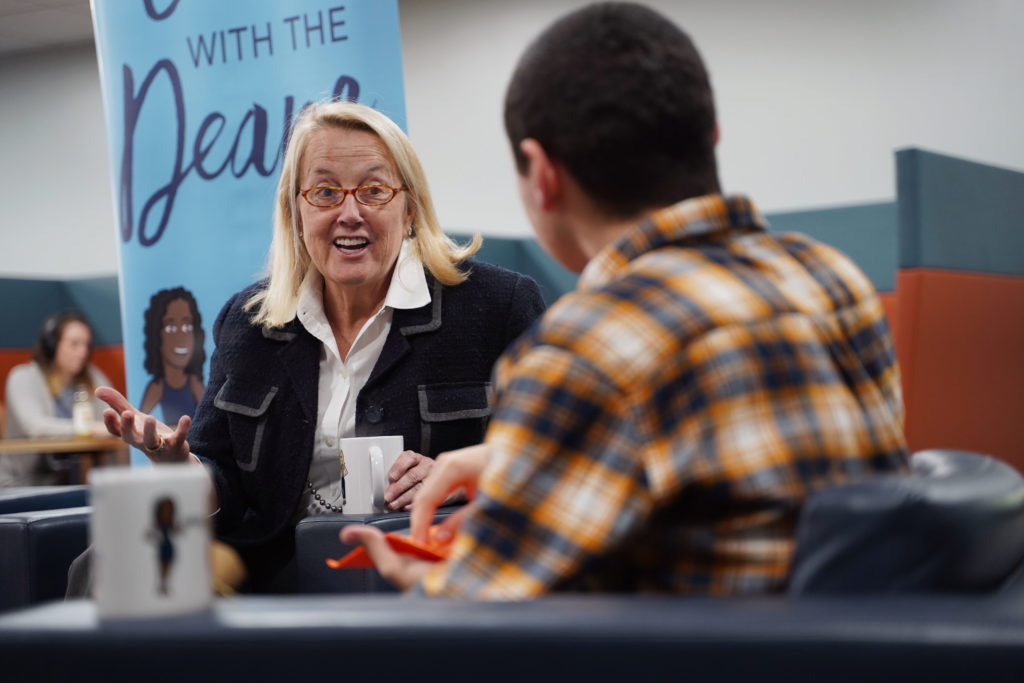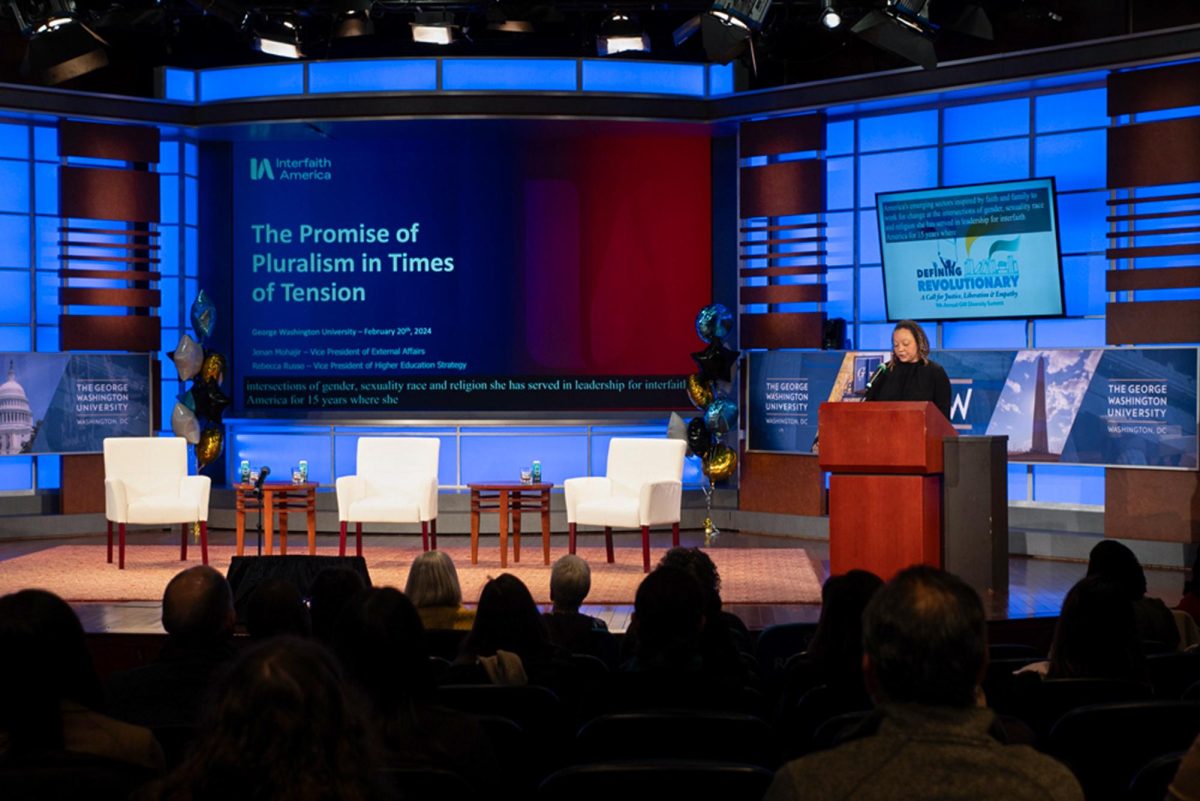Division for Student Affairs officials are providing emotional and mental support for students via online programming as a substitute for in-person activities during the virtual learning period.
DSA officials released a series of programming and mental health resources like anxiety tool kits and virtual sports competitions for students to participate in while most remain off campus. Students said the virtual programming events are beneficial to students struggling with disruptions to their social and daily lives but added that the times of the events often conflict with their new schedules at home.
“When we can’t be together in person, we connect virtually,” Cissy Petty, the vice president for student affairs and dean of students, said in an email. “We are a community. We are going to continue to be a community, and through these events we hope we will continue to provide connections with and among students with similar interests.”
Petty said the events, ranging from mental wellness discussions to Netflix parties, are designed to offer students a space to connect with each other virtually by sharing similar interests. Programming is planned to run until May 13, according to the DSA website.
Petty said officials are promoting their events through other University departments’ social media, newsletters and student leaders’ assistance. She said officials hope the events can help students “find a sense of balance between academics and self-care” during the instructional continuity period.
Petty said officials have seen a “positive” turnout from students who have participated in programming. She said some of the DSA’s social events, like the Lerner Health and Wellness Center’s sponsored virtual trivia – a national quiz event where teams of students compete against each other for college gear on the platform Twitch – is attracting more than 50 students each week.
“We are happy to be seeing a lot of students returning each week and creating virtual teams,” Petty said. “An added bonus to the trivia is that our students are competing against students at other colleges.”
In addition to virtual social gatherings, the DSA is offering virtual mental health-focused sessions like group counseling and self help tool-kits to teach students tips for managing stress and anxiety symptoms. Petty said some of the mental health discussion series events like the “anxiety toolbox,” which is designed to increase students’ understanding of their anxiety, typically host three to five students per session because officials offer them “often.”
Students said mental health services officials are offering to provide a space for students struggling with anxiety and isolation from peers to talk through their emotional struggles.
Rubin Roy, a freshman majoring in computer science, said he is a member of multiple student organizations including the Hindu Students Association and Association for Computing Machinery, making his transition to online learning a larger adjustment after he lost his daily interaction with people.
He said he has not attended any of the DSA’s events but has taken advantage of other online virtual learning seminars specific to his interests like the Nashman Center for Civic Engagement and Public Service’s advocacy workshop on virtual service work.
“It can’t hurt to just go there and learn more about something that they offer,” Roy said. “All of them have really been giving me the chance to interact with GW in ways that I’d have liked to before this all happened and definitely not the same, but it’s close enough, and it’s something I’m really appreciative about.”
Roy added that he would be interested in attending DSA’s events because of the chance to virtually socialize. He said the group counseling sessions are a “great” resource for students to air their grievances as stress from finals, online classes and the COVID-19 pandemic weigh on student’s mental health.
“I think everybody could use the opportunity to just at the very least talk or relieve some stress, especially right now because on top of everything that’s happened to finals season and we’re all getting our housing assignments and classes for next year and things feel like they’re moving really fast, and we don’t even know about the fall yet,” Roy said.
Administrators plan for students to resume in-person classes and residency in the fall 2020 semester, but other institutions like Boston University are considering pushing back the start of the fall semester to January 2021 if public health authorities continue to limit mass gatherings.
Sofia Campo, a freshman majoring in psychology, said she has not attended any of the events because she has been busy with her online classes, but she felt her professors have done a good job of alerting students about resources being offered. She said students coping with the changes to their daily routines could benefit from interacting with each other, and she is interested in participating in the events in the coming two weeks.
“Just like with anything, a big change in your daily routine, or the way that you’re learning can affect your mental health negatively,” Campo said. “It’s important to have those resources there.”
Freshman Maya Younes said they do not plan to attend the social virtual planning events because they do not cater to her general interests. They said DSA should have asked for student input via polls to make the events more enticing to join.
“They just haven’t sparked my interest,” Younes said. “I think I saw one for a movie night. I can just watch movies with friends online.”
Younes added that the mental health services offered are “a lot” more beneficial to students than social events like Netflix parties because many students have lost safe spaces on campus and forms of support with the transition home.
“Mental health services are really important especially right now,” Younes said. “A lot of change is really disruptive for people’s schedules and regimes and there’s a lot of uncertainty about what’s going to happen next.”








